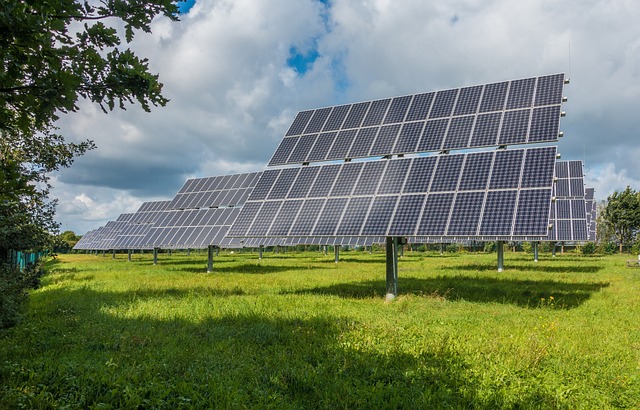[Reuters Analysis] US energy investors juggle exposure as tax bill debate rolls on: Maguire

By Gavin Maguire
LITTLETON, Colorado, June 18 (Reuters) - Energy equity investors are adjusting positions across the U.S. power sector in an attempt to pick winners and cut losers ahead of the final passing of President Donald Trump's tax-and-spending bill.
The "One Big, Beautiful Bill Act" contains aggressive cuts to several tax credits and incentives tied to clean power generation from renewable energy sources, and has sparked an aggressive selloff in stocks tied to the sector.
The bill would also accelerate the phase-out of federal support for electric vehicles, clean energy component manufacturing and wind farm development.
However, the latest U.S. Senate proposals - which tweaked the version previously passed by the U.S. House - preserve support for nuclear, geothermal and battery storage projects, and sparked gains in stocks tied to nuclear power.
Additional adjustments to the bill proposals are likely before it can be passed into law by Congress, sparking more position jostling by energy investors in the weeks ahead.
Below is a breakdown of the key energy sector exchange-traded funds (ETFs) and equities that have and will be most impacted by the proposed budget.
SOLAR SOCKED
Stocks tied to companies engaged in the production of solar panels and inverters and in the installation of solar systems stand to be among the biggest losers once the proposed bill is passed, regardless of its final make-up.
The Trump administration and many Republican lawmakers are against federal subsidies for solar power for several reasons, including concerns about its intermittency and its heavy reliance on components made in China and elsewhere.
The Senate's recent budget bill proposal phases out several key solar tax credits and subsidies from 2026, and would eliminate them entirely from 2028.
As the solar sector has already been hit by rising interest rates - which lifted the cost of system installations - the speedy gutting of federal support has greatly dimmed the prospects for several companies in the space.
Stocks in solar inverter manufacturer Enphase ENPH.O and panel makers First Solar FSLR.O, Sunrun RUN.O and SolarEdge SEDG.O have all dropped by 20% or more within the past month as ramifications of the bill proposals were digested.
Shares in the Invesco Solar ETF TAN plumbed five-year lows in April, and are down more than 50% over the past two years as investors jettisoned positions and the sector's outlook darkened under the anti-renewables Trump administration.
NUCLEAR AND GEOTHERMAL
Several energy investors looking to get out of the solar space have pivoted their funds into the nuclear power sector, which has gained support under the current Trump administration.
The Global X Uranium ETF URA.P has gained more than 35% in value over the past month, and recently scaled its highest levels in more than a decade.
Investors have been drawn to the fund by the likelihood of a tightening in the supply of uranium - the main fuel used by nuclear power plants - should more reactors get commissioned once the tax bill becomes law.
Stocks in companies tied to geothermal energy production have also rallied recently as provisions tied to supporting the sector were preserved in the latest round of bill wrangling.
Shares in Nevada-based Ormat Technologies ORA.N, which makes power converters for geothermal plants, are up more than 30% since early May.
MAJORS, GRIDS AND LNG
Energy investors have also recently increased positions in funds and companies within the traditional oil and gas sector, as the gutting of clean energy subsidies will likely increase demand for fossil fuels.
Shares in the SPDR Energy Select Fund <XLE.P> - which holds several major oil and gas producers - have rallied on the recent tensions in the Middle East and due to the brighter outlook for U.S. gas demand if renewable generation is stalled.
Firms with large natural gas production businesses stand to gain further if the proposed bill slams the brakes on renewable power growth and increases the U.S. power sector's dependence on gas.
Shares in the companies tied to the liquefied natural gas (LNG) sector have also fared well lately due to the Trump administration's support for expanding LNG exports.
Shares in Cheniere Energy LNG.N - the top U.S. LNG exporter - are up around 10% year-to-date and over 50% over the past year.
Investors have also increased their exposure to ETFs and companies dedicated to upgrading the U.S. power grid, which have upbeat outlooks regardless of how the final tax bill looks.
The First Trust Smart Grid Infrastructure Fund GRID.O is up around 12% year-to-date, while the First Trust North American Energy Infrastructure Fund EMLP.K is up about 4%.
Going forward, investor interest is likely to also grow in the battery storage sector, with the iShares Energy Storage and Materials ETF IBAT.O already on investors' radars.
The fund has dropped around 5% in value so far this year due in part to the dimmed outlook for solar power growth, which utilities pair with battery systems to ensure round-the-clock supplies.
But in the months ahead utilities will still likely increase their use of battery systems even if they slow their uptake of new solar systems, as the solar-plus-battery combination remains the fastest route to deliver new power to U.S. grids.
The opinions expressed here are those of the author, a columnist for Reuters.
Enjoying this column? Check out Reuters Open Interest (ROI), your essential new source for global financial commentary. ROI delivers thought-provoking, data-driven analysis of everything from swap rates to soybeans. Markets are moving faster than ever. ROI can help you keep up. Follow ROI on LinkedIn and X.
One-year performance of major US energy sector ETFs
Rough patch: All major solar stocks have taken a drubbing over the past 2 years
Solar shunned as nuclear takes off
Mixed bag for oil & gas stocks
Grids & batteries ETFs on investor radars








